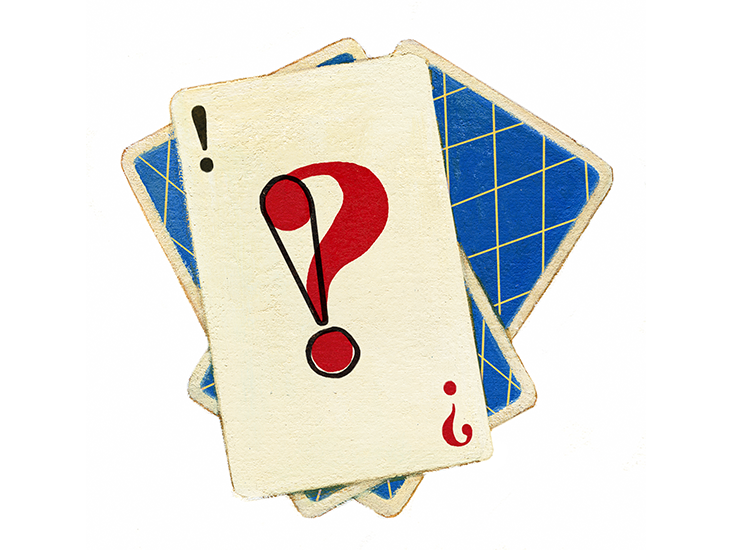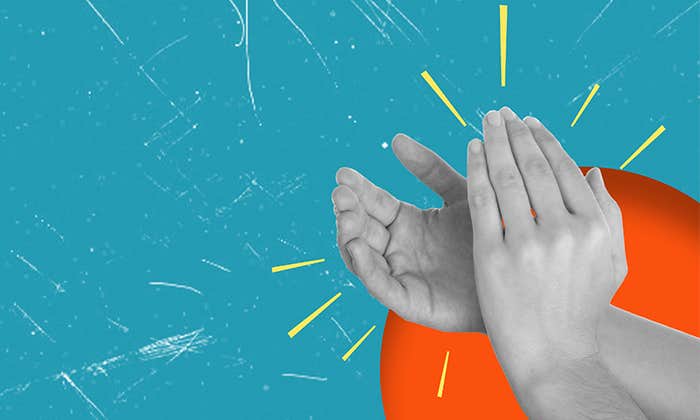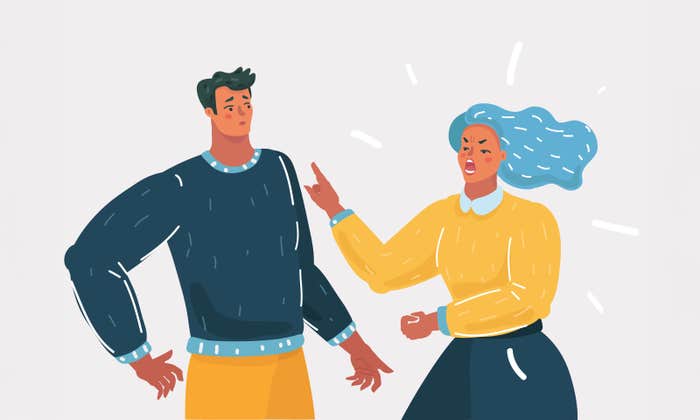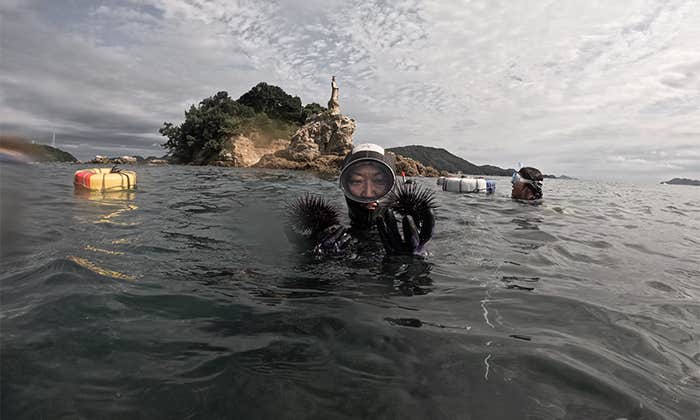I
didn’t choose to have a child. Not if “choosing” means
something rational—weighing pros and cons, coming to a conclusion.
I tried that process but ran away from it because, even though I
wanted a child, it seemed to me that creating a whole new person was
such an enormity that no one could rationally decide to do such a
thing. There is so much at stake, and so little certainty about the
outcome. A child that I conceived might be happy, but he might be
miserable beyond endurance. The child might bring happiness to
others, or he might ruin people’s lives. It seemed to me that
creating life was an act of astonishing hubris because it made me
responsible, maybe morally
responsible, for huge consequences. For most of our species’
history, we were spared that decision because procreation was not
(for the most part) a choice, but merely something that happened to
us. It was a biological destiny. We escaped that destiny when science
gave us control over our fertility. But I wasn’t equal to the
freedom that science gave me. Fearful of such an immense decision
amid such uncertainty, I
allowed myself to drift into parenthood instead of choosing it.
I let other people’s expectations, the sheer normality of having
children, construct a new, sociological destiny for me to replace the
biological one and protect me from what seemed an impossible choice.
I
was right to be concerned about my children’s uncertain future and
unpredictable impact on the world. But was I right that the decision
to create life was possibly blameworthy
if things turned out badly? Here’s a line of thought that could
have reassured me: Whether what I do is morally right or wrong
doesn’t depend on the good or bad outcomes of my actions, because
these outcomes are influenced by factors beyond my control. It
depends instead on my intentions at the time of acting. However
risky my actions might be in every other respect, I never face moral
risk because I’m only answerable for my intentions and not for how
things happen by chance to turn out.
As an object of moral judgment, I am immune to misfortune, utterly
secure in the face of uncertainty.
So,
imagine someone who decides to have a child and sets about parenthood
with the best intentions—to bring up the child as well as possible,
to make the child happy and a source of happiness in others. Imagine
that these are real
intentions, not just wishes but a determined conscientious
commitment. And imagine that the child grows up to do as Adam Lanza
did: He walks into an elementary school one day and shoots dead a
score of small children and the adults who try to protect them.
I allowed myself to drift into parenthood instead of choosing it.
Whatever
else the parent forfeits as a result of this atrocity, surely she or
he is secure against blame? Wouldn’t we feel compassion for such a
person and offer consolation by saying, “Your intentions were good.
You cannot blame yourself for such a turn of events.” Isn’t that
a certainty amid uncertainty that lessens the sense of enormous
hubris that we might feel when we consider parenthood?
Disturbingly,
it is a certainty that evaporates under examination. Because the fact
is that, despite the emphasis we place on good intentions, we do
routinely pass moral judgment on ourselves and others for outcomes
that were not intended, not foreseen, and influenced by factors
beyond our control. Philosophers call this “moral luck,” by which
they mean that the
judgment we deserve often depends not only on our intentions, but on
how our actions happen to turn out.
This
moral vulnerability to luck is pervasive, because nothing at all that
we do as parents is fully under our control. Some people, for
instance, have to do their parenting in very challenging
circumstances. The parent of a child of difficult temperament, in a
country whose gun laws make it easy for the mentally ill to obtain
lethal weapons, is more likely than another parent to find him or
herself morally implicated in murder. The essay
“I
Am Adam Lanza’s Mother”
drew an enormous readership online and gave voice to the anxiety felt
by parents who fear their emotionally troubled kids could become
violent.
We
are also vulnerable to chance in our own personalities—the good and
bad traits we happen to possess, which of course affects our
parenting. We have only a limited control over our characters; for
some people, being a dedicated, attentive, engaged parent is just
easier. That doesn’t make it wrong to praise them. It means that
they are lucky
enough
to earn praise for good actions that come naturally to them. Others
are unlucky enough to be blamed for deficits they did not choose. Of
course, we can do battle with our shortcomings, and we can admire
people who are good despite themselves, by a constant effort of will.
But even this effort of will is something that some people are lucky
enough to find easier than others. When it comes to our guilt or
innocence as parents, we are at the mercy of chance.
This
effect emerges in the
attitudes displayed by and towards some parents caught up in
notorious atrocities. When the mother
of the alleged kidnapper and rapist Ariel Castro asks,
“May those young ladies forgive me,” she seems to acknowledge
some sense of moral responsibility for events over which she
apparently had no knowledge or control. And we understand her sense
of responsibility because, in her shoes, we would feel it too. We
have compassion for this woman precisely because we accept the
naturalness, the inevitability, of her self-reproach. Even
when we reassure the parents of wrongdoers that they are not to
blame, we do expect them—require them—to feel guilt,
to need
such reassurance. We would probably look askance at these parents if
they claimed their good intentions as parents meant they had no moral
entanglement in the crime.
The judgment we deserve often depends not only on our intentions, but on how our actions happen to turn out.
Susan
Klebold, mother of the Columbine killer Dylan Klebold, speaks
of being
“widely viewed as a perpetrator or at least an accomplice since I
was the person who had raised a ‘monster.’” She
cites a survey
in which 83 percent of respondents believed that the parents’
failure to teach proper values played a significant part in the
Columbine killings. Klebold at times had
similar thoughts herself:
“We perceived his actions to be our failure. I
tried to identify a pivotal event in his upbringing that could
account for his anger. Had I been too strict? Not strict enough?
Had I pushed too hard, or not hard enough?” And though we have no
reason to doubt that Klebold did do her best to raise Dylan, she
likely has plenty of moments to look back on with regret. Even the
most well-intentioned parents are sometimes too tired, distracted,
ill-informed, or even just plain lazy to model good behavior, say the
right things, or listen to their children attentively enough to
understand the thoughts they are struggling with. If their children
do not go on to commit terrible crimes, these ordinary parental
lapses would
be forgotten, rather than becoming the antecedents of horror. The
Klebolds could have gotten lucky: A thousand chance events might have
deflected their son from performing such a heinous act. But as things
turned out, they were tragically unlucky: A vast matrix of causes led
Dylan Klebold to commit this crime, and one or more of his parents’
ordinary parenting failures are likely to be somewhere
in that matrix. The awful truth is that the degree to which we are
blamed for relatively minor wrongdoings often depends not on the
wrongdoings themselves, but on chance outcomes they may have
contributed to.
For
example, look at a recent
speedboating accident
in Britain, apparently caused by negligence. A family was thrown from
their boat, which then plowed into them, killing the father and one
daughter, and severely injuring the mother and one other child. The
deaths and injuries might have been avoided if the boat’s driver
had used a “kill cord,” a standard safety feature designed to cut
the boat’s engine as soon as the driver falls overboard. It is
quite common for people to fail to use these kill cords properly, but
most of them are lucky and nothing tragic happens. On this occasion,
they were unlucky. The fact that it was a chance event that led to
the family being thrown from the boat does not protect the driver
from being somewhat morally accountable for two deaths and for the
life-changing disabilities of two of the survivors. One natural
response to this story is to feel deep compassion for whoever was
driving. We hope that it was the deceased father and not the
surviving mother, so that she is spared from a lifetime of
self-reproach. This compassion, as much as any harshness felt toward
the driver, shows that we accept that a relatively small wrongdoing,
combined with a stroke of terrible luck, can generate terrible guilt.
Similar
thinking appeared around a recent case in the National Hockey League,
where a hard but unexceptional and arguably legal hit led to a player
landing face-down on the ice, losing consciousness, and breaking his
face in several places. For many observers, the grievousness of the
injury meant that the perpetrator had to be blamed, even if he hadn’t
done anything especially wrong. “The consequences of the hit, to
many, somehow had to matter,” wrote
one journalist.
“This is about [the injured player]’s injuries, they
understood—somehow, ultimately—not just about the rules.”
Isn’t
it the same when a host of chance events come together to make one
imperfectly-parented child a killer and another imperfectly-parented child a well-adjusted adult? When deciding whether to have
children, many people think about what mark their child might leave
on the world. But they might not consider that they will have limited
control over their children’s behavior, yet could very well share
the guilt for anything those children do wrong. If
we decide to have a child knowing that we are certain to be imperfect
parents, we are a little like a person who decides to drive a
speedboat without the kill cord in place.
We rely on good luck to save us from terrible blame.

The
exposure to moral luck seems paradoxical because we are also drawn to
the opposite idea—that we can only be held accountable for our
intentions, which are under our special control in a way that nothing
else is. We are pulled both ways.
Recent
research on the brain suggests there are deep roots to the troubling
tensions in our moral judgments. Two researchers, Fiery Cushman at
Brown University and Liane Young at Boston College, have found
evidence that our fractured moral thinking results from the existence
within us of two competing psychological processes: an
“outcomes-based” process, which assesses individuals solely on
the grounds of the causal part they play in the production of harm;
and a “mental-states” process, which is concerned with intention
and foresight, and withholds blame from individuals for harm that
they could not reasonably have foreseen. These systems generate
contradictory outputs when individuals cause harm unintentionally.
Even when we reassure the parents of wrongdoers that they are not to blame, we do expect them—require them—to feel guilt, to need such reassurance.
Neuroscientists
have not yet completed mapping the brain regions that give rise to
these processes, but Cushman and Young’s research reveals that
activation of the right temporoparietal junction is involved with
assessing other people’s mental states; the more this part of the
brain is activated during moral judgment, the less we tend to blame
people for the unintended outcomes of their actions. Disruption to
the right temporoparietal junction (and also to the ventromedial
prefrontal cortex) affects the judgment of intentional, but not
unintentional, harm. This suggests there are two distinct
neurological processes involved. During the judgment of unintentional
harm, brain regions associated with cognitive conflict and cognitive
control light up, as the brain works to reconcile the outputs of both
the outcomes-based and the mental-states processes. Questionnaires
presented to hundreds of adults, in which they are asked to pass
judgment on people in hypothetical scenarios, confirm the existence
of this conflict. These studies also show that judgments about
punishment are heavily dependent on outcomes, rather than intentions.
This may account for some of the tension we feel when we consider,
say, two drunk drivers, one of whom gets home without causing an
accident and the other of whom kills a child. We acknowledge a sense
in which both drivers are morally equal, but we also feel it right to
punish the killer more severely. This seems to be because our
thoughts about punishment are strongly influenced by the
outcomes-based psychological process. Cushman speculates that we
have a basic instinct to punish bad outcomes arising from a period in
our evolutionary history when
we were not able to communicate intention reliably,
and the best way to encourage pro-social behavior was to punish harm
and reward benefit, whether accidental or not.
Is
there any comfort to be gained from learning that our conflicting
moral responses have this underpinning in the brain—particularly
from the suggestion that our harsher, more punitive responses might
be anachronistic, a hangover from past evolutionary times? Not as
much as we might hope for. The moral quandaries we face aren’t
dissolved when we find their neurological and evolutionary basis any
more than our appreciation of art is undermined by the neurological
and evolutionary basis of our perception of depth and color. But the
knowledge that we are influenced by these competing psychological
processes supports the somewhat comforting philosophical idea that we
will never find an entirely coherent, tidy, systematic view of our
moral responsibility. We see that it is problematic, unfair, even
tragic, to burden people with responsibility for outcomes beyond
their control.
But equally it would, in the words of philosopher Bernard Williams,
“be a kind of insanity” never
to
experience sentiments like Ariel Castro’s mother—never to feel a
need for forgiveness, a need to atone, a sense of being at fault—when
our otherwise blameless actions (like giving birth to a child), or
our nearly blameless actions (like parenting a child imperfectly)
cause unforeseen disaster for others. Rather than attempting to
reason ourselves into coherence, we should embark on the more modest
task of reflecting on the actual experiences that are the stuff of
our moral life so that we can see our untidy morality in all of its
contradictory richness. Since we can neither eliminate our
responsibility for chance outcomes, nor find clear criteria for when
we should accept blame, we ought to shift our focus and ask how we
can live with parenthood’s painful uncertainty. What obligations
does it place on us? What consolation can we seek?
We have a basic instinct to punish bad outcomes arising from a period in our evolutionary history when we were not able to communicate intention reliably.
Some
answers emerge from Lionel Shriver’s novel We
Need to Talk about Kevin,
an account of one mother’s rage, defiance, and honest
self-examination in the face of the enormous exposure to blame that
parenthood entails. The title of the book—published in 2003 and
given renewed relevance after the tragedy in Newtown—refers to
Kevin, a troubled child who eventually goes on a killing spree at his
school. His mother, Eva, feels tyrannized
by this distant, unforeseeable culmination of her and her husband’s
decision to have a child. She constantly revisits this decision,
constantly works at piecing together some true and acceptable account
of what has befallen her. She asks herself endlessly whether her son
was just naturally difficult to a degree that made it impossible for
her to parent him successfully, or whether he was in fact an ordinary
child, driven to badness by her cool and reluctant parenting. And she
asks this question without sparing herself, fully aware of the
temptations of protective self-deceit.
Eva’s
struggle sometimes makes it seem like the effort to judge the
morality of our actions is pointless: Our
dual-process brains
commit us both to accepting and to rejecting our responsibility for
events outside our control.
And
if we are as vulnerable to blame for unlucky outcomes of our actions
as we seem to be, no rational investigation will let us pinpoint the
extent of our wrongdoing. Just as we can never anticipate all the
rippling bad outcomes for which we might find ourselves liable, so
too can we never, in retrospect, trace the exact nature of our causal
contribution to them. Four hundred pages of honest self-interrogation
are not enough for Eva to work out her part in the causal matrix that
led to her son’s crime. It seems that only omniscience could
achieve that.
Since
reason shows itself to be of limited use, why not embrace its
opposite? Kevin’s mother feels drawn to various sorts of
irrationality in response to her unlucky throw of the dice in
becoming a parent. She sometimes abandons her rational project of
working out what is or is not her fault in favor of irrationally
taking total responsibility, “gulping down blame with a powerful
thirst.” Because “it’s simplifying… It imposes order on
slag.” Many other people misperceive bad luck as punishment, and
doing so is a major component of religious belief. In Western
religion, a plague, a flood, or a shipwreck can be a punishment for
sin. In Eastern religions there is the concept of karma. For a lot of
believers, this feature of religion is a source of the constructive
acceptance of misfortune. The
notion that our ill luck is somehow deserved can make it possible to
face it dutifully, and with some sort of serenity.
Our dual-process brains commit us both to accepting and to rejecting our responsibility for events outside our control.
But
it is too pessimistic to call irrationality a good thing. Rather than
abandoning reason, Eva’s achievement in the end is to remain
committed to it, to stick with the task of understanding what has
befallen her, and simply to abandon the hope that she will ever
complete that task. She eventually realizes that there is little to
be gained from the construction of inevitably
faulty interpretations of events. Her limited knowledge and our
conflicted moral concepts make a settled interpretation impossible.
At the end of the book she asks Kevin why he did what he did. “‘I
used to think I knew,’ he said glumly. ‘Now I’m not so sure.’”
That deconstruction of a false certainty, she thinks, is progress: We
start to understand matters aright only when we find them
unfathomable.
Some of the neurological research into moral luck offers the same
kind of progress. It looks at a philosophical dilemma and, rather
than resolving it, finds roots of it in the brain. Its
achievement is to understand unfathomability—to map our
bewilderment rather than cure it.
The
surrender to uncertainty that Eva shares with her son at that moment
marks the start of her reconciliation with him and with parenthood
itself. It is not irrationality but rather an embrace of reason’s
limits that is her comfort. That is something like the stance of
religion, too, whose concept of faith can be seen not as an
abandonment of reason, but an acknowledgement that there is a point
where questions and answers come to an end. Perhaps we have reached
some secular version of that acknowledgement when we set aside a
thousand unanswerable doubts and take the biggest gamble of our
lives—creating a human life.
Claire
Creffield is a former Prize Fellow at All Souls College, Oxford, who
lives in the northeast of England. She works as a freelance editor in
academic publishing and occasionally blogs at Talking
Philosophy.


























